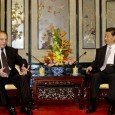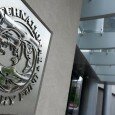By Mehtab Haider –
Despite exaggerated claims of economic revival and independence all successive governments have virtually failed to implement much-needed tax reforms agenda in the country thanks to the short-sighted political elite, oblivious bureaucracy and corrupt business class
Pakistan’s fiscal woes cannot be overcome without undertaking drastic and tough reforms in the tax collection machinery of the country known as Federal Board of Revenue (FBR).
The FBR failed in implementing reform plan during the last two and a half decade even after utilizing around $150 million funded by World Bank in shape of loans and U.K. based DFID as grants by mainly spending on constructing brick and mortars instead of making all out efforts to expand narrowed and skewed tax base by simplifying rules and procedures and facilitating the honest taxpayers.
The unholy nexus among political elite, corrupt tax mafias and vested interest of business class are playing havoc with fate of this country. Instead of paying taxes by filthy rich, they are enjoying tax exemptions worth Rs 600 to Rs 800 billion on per annum basis.
This startling disclosure has been conceded in number of studies done by the donors as well as economists of the country. The collected taxes could only meet expenditure requirement of only two Ds (debt servicing and defence) while the government is left with no other option but to seek fresh loans to meet obligations of running of civil government, pensions and development needs of the country.
On the name of development, politically motivated schemes are on the top of the list every year irrespective of military or democratically elected regime where priorities were set on political grounds instead of any economic rationale or justifications. In this context, people do not prefer to come into tax system on voluntarily basis. The taxation reform is matter of life and death for survival of Pakistan.
Why reforms failed in Pakistan? On the basis of Shahid Hussain Committee during the Musharraf regime, the FBR had prepared ambitious reform plan and then negotiated loan program with the World Bank to finance this project. However, the Tax Administration Reform Project (TARP) funded by the WB had ended in fiasco.
During the last five years, the FBR’s reforms were put on the backburner as the PPP-led regime had brought six Chairmen in tax machinery by setting the precedent to run taxation affairs at adhoc basis. In last seventeen months, the PML-N-led government could not focus upon FBR reforms.
Now finally the Finance Minister Ishaq Dar has constituted Tax Reform Commission Group (TRCG) to prepare an ambitious reform plan within 120 days. When the TRCG recommendation will be non-binding one should not expect that political elite will allow proposals getting through from the Parliament against their own vested interests. The forces of status-quo are the major hurdle in the way of introducing and implementing much-required reform plan in the FBR.
The concept of ‘No Taxation Without Representation’ is recognized globally but in Pakistan all powerful elites such as parliamentarians and bureaucracy – including civil and military – consider as it their right to enjoy luxuries at the cost of taxpayers’ money but do not bother to discharge their duty by paying their due taxes and filing their returns.
The flawed taxation structure heavily relied upon indirect taxes having share of 68 percent while direct taxes contribute around 32 percent. Even this figure is misleading because direct taxes are largely comprised of withholding taxes, which according to tax experts, is also part of indirect taxes.
Ironically, the country’s less than one percent population and precisely 7,92,000 people are return filers in direct taxes, indicating that more than 99 percent population is among the list of non-filers. Without any iota of doubt, it is crystal clear that salaried class and few hundred companies of corporate sector pay their due direct taxes in this country but the tax structure is highly flawed favoring rich and influential at the cost of poorest of the poor of the country.
Fiscal adjustment remained the key problem area for the last five years as the fiscal deficit averaged 6.6 percent of GDP per annum. The flawed reforms in tax administration and policy, power sector, restructuring PSEs and governance remained major bottlenecks towards fiscal consolidation and achieving adjustments.
Tax-to-GDP ratio fell from 11.1% in 2007-08 to 9.3% in 2012-13. Provincial tax collection stagnated at around 0.5% of GDP. FBR Tax-to-GDP ratio actually fell from 10.3% in 2007-08 to 8.8% in 2012-13. Pakistan yields one of the world’s lowest tax-to-GDP ratios (ranks 115th out of 179 countries). The tax administration and structure are planned to be reformed to contribute adjustment to the tune of 0.7 percentage points each year by reforming existing tax system.
With lopsided structure, almost one-fourth of the entire tax collection or 25 % comes from POL at various stages. In customs tariff, 54 % of tariff lines have different tariff rates for different importers through SROs (Statutory Regulatory Orders). Around 86% of tariff lines are affected by an SRO in one way or the other and 44% of the value of imports affected by SROs. Multiple rates are applied on Sales Tax – (0, 5%, 7%, 16%, 19.5%, 22% & 3% additional tax on commercial importers). Effective Sales Tax rate is 3.6% which is very low because of exemptions.
Tax gap is almost equal to actual tax collection. It means that if the FBR envisages collection of Rs 2810 billion there is possibility to double this collection by materalizing all potential avenues. The reforms are aimed at freeing the FBR’s top management from clutches of Finance Ministry, de-politicizing the recruitment, transfer/ postings in the FBR which must be based upon merit.
This will enhance administrative efficiency. Another area of concern remained the tracking of non-filers who enjoy decent living and huge ability to pay.
The overall weakening the writ of the government and institutional degeneration in the country also impacted the functional and operational efficiency of the country in recent past and efforts are underway to make FBR a vibrant organization. However, FBR alone could not make headway in boosting revenues substantially unless it is not equipped with effective legislation.
The structure and the legal framework governing the taxation need to be reviewed by the parliament. The international best practices, technology and political will could play an important role in restructuring the taxation environment. The SRO culture has detrimental effect on competitive environment and nurturing entrepreneurship. This is retarding economic growth and by bringing those in normal tariff lines could add 3-4% of GDP in the tax revenue by fueling economic activity. Taxation policy has to be complemented by other macroeconomic policies as it is just a small component of the big pie.
The structural reforms under the IMF program (both pertaining to expenditure or revenues) should be implemented in holistic form and piecemeal approach will not work as proved in the past. The economic growth has to be boosted to around 7% in the medium-term and tax policy will enhance the much needed allocative efficiency of factors of production.
![]() The writer is an Islamabad-based senior economic correspondent working with The News
The writer is an Islamabad-based senior economic correspondent working with The News

































































































